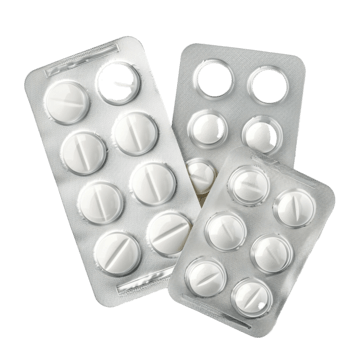Bupropion

Bupropion 100mg, 150mg, 300mg
Bupropion is an antidepressant medication primarily used to treat major depressive disorder and seasonal affective disorder. It works by influencing the neurotransmitters in the brain, particularly norepinephrine and dopamine, which help improve mood and reduce feelings of sadness. Bupropion is also prescribed as a smoking cessation aid, helping individuals quit smoking by reducing cravings and withdrawal symptoms. Notably, it is less likely to cause weight gain and sexual side effects compared to other antidepressants.
Order NowDescription
Bupropion is an atypical antidepressant that is primarily used to treat major depressive disorder (MDD) and seasonal affective disorder (SAD). It is also prescribed as an aid to help individuals stop smoking. Bupropion works by affecting neurotransmitters in the brain, namely dopamine and norepinephrine, which play roles in mood regulation and addiction.
Uses / Indications
- Major depressive disorder (MDD)
- Seasonal affective disorder (SAD)
- Smoking cessation (as part of a smoking cessation program)
- Anxiety disorders (in some cases)
- Attention-deficit hyperactivity disorder (ADHD) (off-label use)
Dosage and Administration
Adults:
The typical starting dose for depression is 150 mg once daily, which may be increased to 300 mg, depending on individual response and tolerance.
Smoking cessation:
Initial treatment may start at 150 mg once daily for the first 3 days, then increased to 150 mg twice daily.
Note: Dosage may vary based on medical condition or doctor’s advice.
How It Works (Mechanism of Action)
Bupropion’s exact mechanism of action is not fully understood, but it is believed to work by inhibiting the reuptake of dopamine and norepinephrine in the brain. By increasing the levels of these neurotransmitters, bupropion helps improve mood and reduce cravings associated with nicotine withdrawal.
Side Effects
Common side effects:
- Dry mouth
- Insomnia
- Nausea
- Increased sweating
- Dizziness
Rare/serious side effects:
- Seizures (risk increased with doses over 400 mg/day)
- Manic episodes in individuals with bipolar disorder
- Severe allergic reactions (rash, swelling, difficulty breathing)
Seek medical attention if serious side effects occur.
Precautions / Warnings
- Notify your doctor if you have a history of seizures, eating disorders, or alcohol/substance abuse.
- Use with caution if you are taking other medications that lower the seizure threshold.
- Not recommended during pregnancy unless essential; discuss risks with your doctor.
Drug Interactions
May interact with:
- Monoamine oxidase inhibitors (MAOIs)
- Antidepressants, particularly SSRIs and SNRIs
- Antipsychotics
- Medications that lower the seizure threshold
Always inform your healthcare provider about any other medications or supplements you’re taking.
Storage Instructions
- Store at room temperature (20°C–25°C / 68°F–77°F)
- Keep away from excess moisture, heat, and direct sunlight
- Keep out of reach of children
Missed Dose / Overdose
Missed a dose?
Take it as soon as you remember. If it is close to the time of your next dose, skip the missed dose. Do not double up.
Overdose symptoms:
- Seizures
- Rapid heartbeat
- Confusion or hallucinations
- Severe headache
Contact a poison control center or seek emergency medical help immediately.
Contraindications
- Allergic to Bupropion or any of its ingredients
- Seizure disorders or a history of eating disorders
- Use of MAO inhibitors within the last 14 days
Brand Names / Alternatives
- Wellbutrin
- Zyban (for smoking cessation)
- Aplenzin
- Bupropion hydrochloride (generic)

